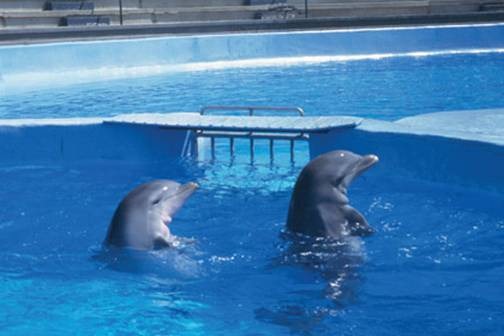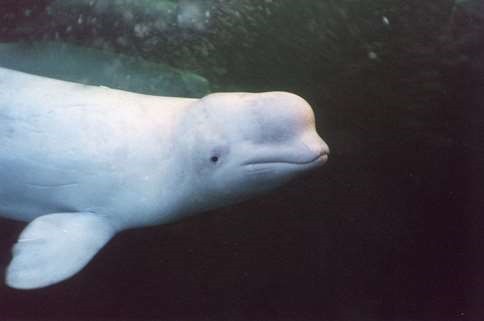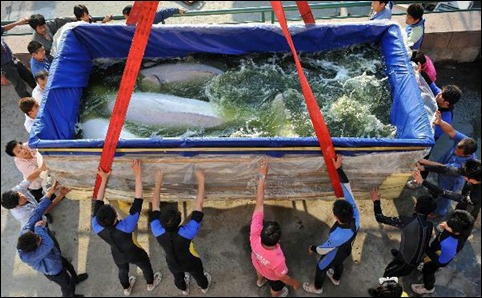The Georgia Aquarium Plunders the Oceans in the Name of Conservation
By Lori Marino, Ph.D., Emory University Center for Ethics and The Kimmela Center for Animal Advocacy, and Thomas I. White, Ph.D., Conrad N. Hilton Chair in Business Ethics, Loyola Marymount University.
On June 15th, the Georgia Aquarium quietly filed an application for a permit to import 18 wild-caught beluga whales from Russia into the United States. They plan to keep some of them for themselves and to distribute the rest among three SeaWorld facilities, the Shedd Aquarium and, eventually, the Mystic Aquarium and are receiving public comments on this issue until midnight October 29th at https://www.federalregister.gov/articles/2012/08/30/2012-21481/marine-mammals-file-no-17324
The last time a U.S. aquarium took marine mammals directly from the wild was in 1993, when the Shedd Aquarium in Chicago set off a firestorm of protest by capturing some Pacific white-sided dolphins from California waters. Since then, in order to avoid pubic controversy over their profitable marine mammal entertainment programs, U.S. marine parks have abided by a self-imposed moratorium on the capture and import of wild marine mammals. Instead, they have focused on captive breeding to stock their pools and keep the shows going. In seeking to import 18 wild-caught belugas the Georgia Aquarium has abandoned the moratorium on taking wild dolphins and whales. If the import is approved, it will roll the clock back to an era when U.S. marine parks regularly removed wild dolphins, orcas, and whales from their families in the oceans to put them into shows.
The Georgia Aquarium says that the import is all about conservation. But the truth is that the import is about reinvigorating a stalled beluga captive breeding program in order to sustain and grow the population of popular belugas at U.S. marine parks. Currently, there are only 34 belugas in captivity in the United States. The 18 wild Russian belugas the Georgia Aquarium wants to import would push that number to above 50, infusing the existing captive population with new genes, and growing the population to a size that the Association of Zoos and Aquariums considers right for a successful captive breeding program.
Such “species survival programs” are justified on the basis of conservation. But, ironically, the beluga population in the Sea of Okhotsk from which the Georgia Aquarium 18 were captured is healthy (in fact, a condition for receiving an import permit is that the capture will not endanger the target population). In contrast, the longevity and survival of belugas is much more threatened in captive settings like the Georgia Aquarium, where programs to breed and sustain the beluga population have been unsuccessful.
Infant belugas fare very poorly when born into an artificial environment where their mothers lack the social support they would enjoy from sisters, aunts and friends in their natural setting. The last baby born at the Georgia Aquarium died at just a few days old. Overall, belugas in captivity lead more stressful and less healthy lives than their wild counterparts. The bottom line is that most captive breeding programs are not about conservation of animals in the wild; they’re about conservation of zoo and marine park profits.




